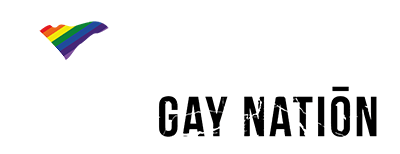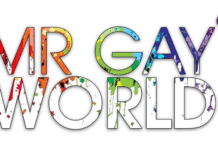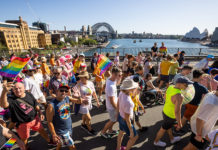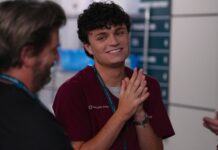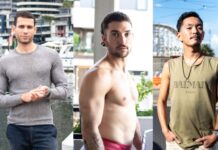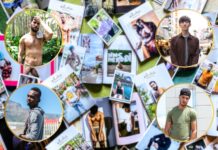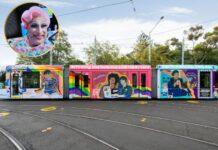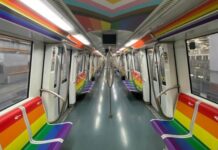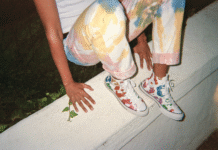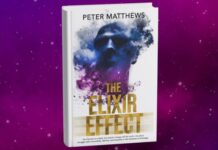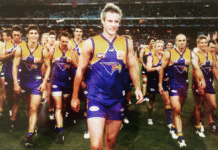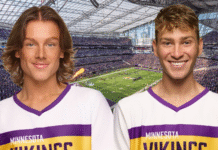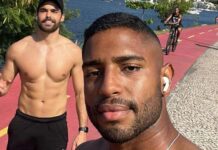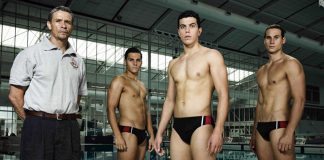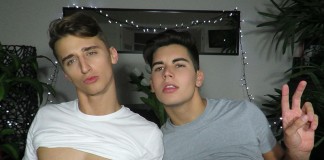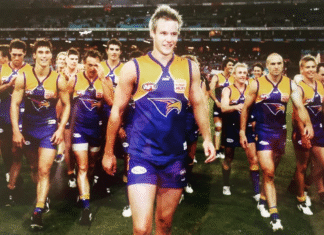
As we delve deeper into the topic of arts access and wellbeing, I reached out to a friend about their time at sea, experiences with the arts, and how drag expressionism inspired a career shift for the better.
Peter Williams is currently living in Vancouver, where he is working towards breaking out on the Canadian silver screen having spent one year at the Western Australian Academy of Performing Arts (WAAPA, Diploma in Screen Performance), and 1.5 years at the West Australian Screen Academy (WASA, Bachelors of Screen Studies: Director/Producer).
He has written, produced, and starred in various film works whilst in Perth, Western Australia, but what might come as a surprise, is that Williams spent ten years in the Royal Australian Navy, prior to becoming a professional actor.
“I joined the Navy on April 30, 2007. I had left high school and went off. I ended up joining as an electronics technician, and then throughout my basic and initial technical training, decided I wanted to work on the weapons electrical systems,” Williams recalled.
“I then did further training to specialise in aft systems, which involves surface-to-air/surface-to-surface missiles, torpedo systems, and counter-missile systems.”
Williams was deployed on various ships (HMAS Arunta, HMAS Warramunga, HMAS Toowoomba) as part of multiple operations which had service across the world. Most notably were Operations Slipper and Manitou, which saw duty to the Middle East, and the Afghanistan War. When asked about the military culture in tandem with mental wellbeing, he had this to say:
“I think the culture around mental health in the Defence Force has come a long way in terms of what their understanding is. When I first started it was understood that there were mental health issues, but they didn’t really name or identify them. It was still quite taboo to talk about.”
“They offered mental health services in terms of having a psychologist and chaplain services – but there was always a stigma attached to it, and it was something that could get you deemed “medically unfit for sea” making you a ‘high risk to be put in an operational zone’. It was an automatic thing, and because they [sailors] thought they could lose their deployment, many people wouldn’t talk about their mental health or wellbeing.”

Williams mentions that he started to take an interest in photography whilst at sea. From there, his love of composition and editing became like “a therapy for me in dealing with wherever I was, and whatever I was experiencing. It was a nice escape.”
“Through that I started dabbling with other things, like drawing and writing. Then there was a talent show at sea, where we all tried to entertain each other, and I got up and did a drag comedy show … building that persona, that character, felt like wearing an invincible armour.”
“I found my way through to performance from other art forms, more from an escapism point of view. Escaping from my own reality at times, and what I was dealing with – but also in helping others escape, that was more so what drew me to it. I loved seeing people get enjoyment and entertainment out of what I was doing.”
After this newfound passion, Williams started to apply for films, booking his first solely based on his looks, on a five-day production in Yanchep, Western Australia. “A Few Less Men was my break, my moment where I went … I fucking love this!”

With a taste of the arts on his tongue, Williams’ next step was to enlist in a different type of force – the Western Australian Academy of Performing Arts. He described the transition from Leading Seaman to Arts Student as “whiplash”.
“I went from one industry that was very male-dominated and confronting in its masculine behaviour and language; and I also lived a very technical life on the ships, surrounded by systems, and process – to then go into WAAPA where it’s chaotic, so much free speech, there’s so many challenging ideas, so much more accountable factors … it was overwhelming, but exciting.”
“I started to notice the similarities between being on a ship at sea, and being part of an arts college, or film production – it was the camaraderie. The sense of family, and the sense of belonging. A production is very much like a ship – everyone’s working together to keep the production afloat.”
It was recently announced that his short film Match Made, has been nominated for a WA Screen Culture Award for Best Writing, Best Innovative Short Film, and Best Performance – as the writer, producer, and lead actor. With a growing foundation in the arts, I asked Williams how the arts had impacted his life since the Navy.
“Arts was an avenue to rehabilitation for physical and mental injuries sustained during my service. Its impact has been tenfold. I often think back to the man I was in the Navy, and I don’t recognise him. I don’t recognise his insecurities, I don’t recognise his over-confidence – I look at him and think, that could still be me if I didn’t find performance. It’s opened a whole new world, and way of being, for me.”
Last Updated on Nov 30, 2022
The news team for Gay Nation love tips from our readers. Got tips or a news story that you would like published? Go here to tell us something.
Visit the Gay Nation store Now

